
Music in Motion
There are certain songs that are just conducive to driving – "Baby, You Can Drive My Car" (The Beatles), "Crosstown Traffic" (Jimi Hendrix). . . or, perhaps, if you’re like those in David Cronenberg’s erotic, accident seeking film Crash, "Hit Me Baby One More Time" (Britney Spears). This is the genesis of the new 2017 movie Baby Driver – the soundtrack belongs to the young getaway driver, listening to his playlist as he puts the pedal to the metal and "Lets the Good Times Roll" (The Cars). An impressive example of music in motion, writer/director Edgar Wright (Shaun of the Dead; Hot Fuzz) develops a highly original concept that in some ways feels like a musical. A quasi-form of Mickey Mousing (when music and action match up onscreen), the film is uniformly paired with the tracks heard throughout – edited and sometimes even lip synched/danced to by the characters. Look to the examples of the tunes highlighted above, as I’ve decided to have some fun with this review and interlace the names of different songs throughout – some that are featured in Baby Driver and some that just help describe the story and action.
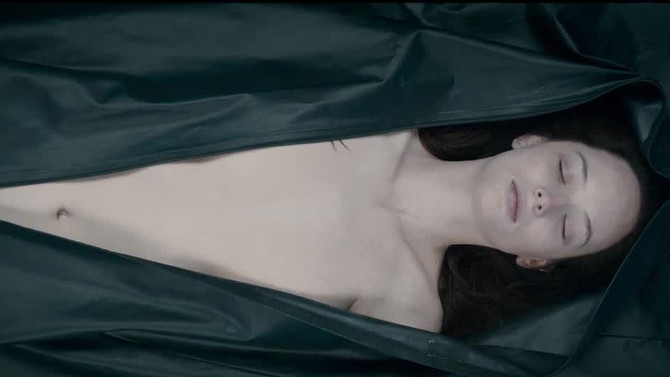
Dissecting Jane Doe
Perhaps the beginnings of a new sub-genre of horror, André Øvredal’s 2016 offering, The Autopsy of Jane Doe, follows up the similarly set The Corpse of Anna Fritz with another claustrophobic, morgue-centric tale. Perhaps we could drop the ‘rue’ from the classic Edgar Allen Poe tale and call them "Murders in the Morgue". With a cleverly concocted set up, the first half of the film toys with us, introducing not only the main characters, but the little threads that will come into play later on. Beginning with a gruesome murder scene (dead bodies are scattered throughout a house), Sheriff Burke (Michael McElhatton – Roose Bolton in Game of Thrones) is stymied when he discovers a half buried body of a young woman – the only one with not a thing wrong with it (seemingly). In a bizarre twist, it seems like those murdered were trying to escape the abode – and that no one broke in.
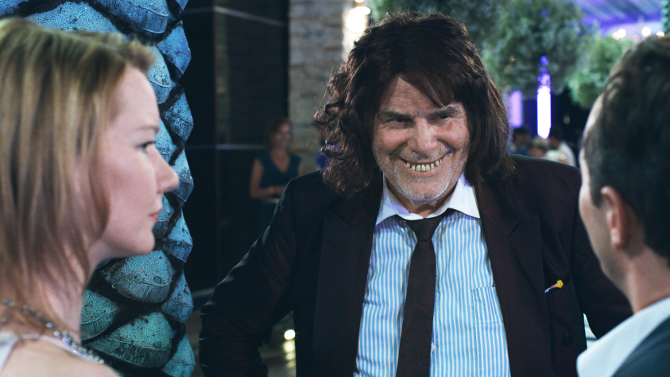
Persona Non Grata?
At its heart a story about a complex father/daughter relationship, with 2016's Toni Erdmann, writer/director Maren Ade charts her tale down a highly original course as the pair work out their many issues in the most unorthodox of ways. The German motion picture was nominated for Best Foreign Language Film at the Academy Awards this past year, with many seeing it as the outright favourite. . . it lost to the more politically relevant Iranian film The Salesman – Asghar Farhadi’s second win in this category. Winfried Conradi (Peter Simonischek) is an all-out kook – a prankster who loves playing games with everyone he meets. Like a child in a man’s body, we first meet Winfried as he receives a package from a courier. Claiming that it is his brother’s (and that he was just released from jail for putting bombs in the mail), he leaves, returning moments later with a new outfit and fake teeth, pretending to be his criminally eccentric sibling.
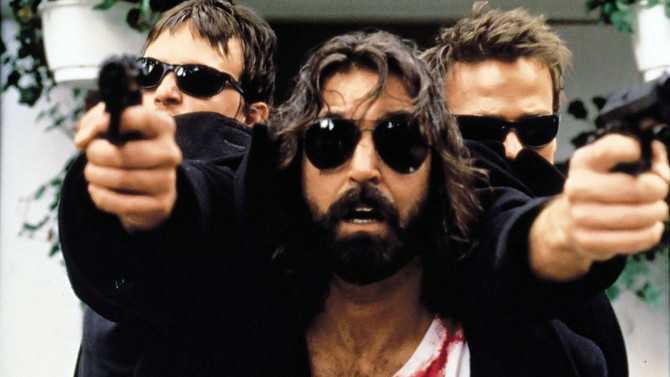
The Saints are Coming. . .
If you’ve ever wondered what it would look like for a toilet to be dropped onto a mobster’s head from approximately five stories up, then 1999's Boondock Saints, written and directed by Troy Duffy, may be for you. A rare movie that has been absolutely obliterated by most critics yet loved by an extremely fervent cult following, it is clearly not for everyone. The leads are Catholic Irish American twins, Connor (Sean Patrick Flanery) and Murphy MacManus (Norman Reedus), a pair of impoverished Bostonians who work at a meat packing plant. Friends with a low level Italian mob runner, Rocco – aka ‘Funny Man’ (David Della Rocco), the triumvirate are enjoying a few pints on St. Patrick’s Day when some Russian thugs come into the bar and unceremoniously tell them that it is closed and now under their control. The goons are overrun by the patrons, embarrassed at their own game. It does not take long for the Russians to track down their combatants from the previous night, looking to respond by putting a few bullets into them. The twins are somehow able to fight them off (killing them in the fray), but panic and flee the scene.
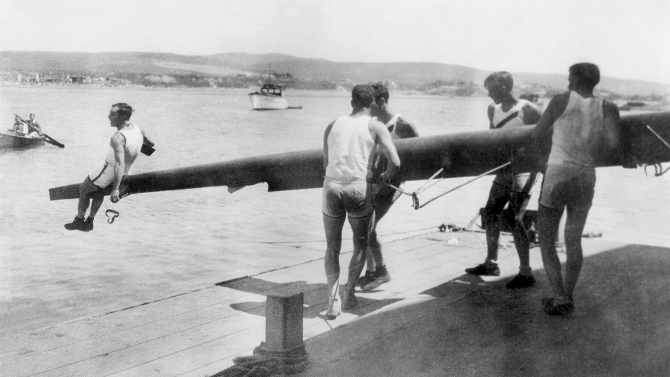
Getting on Track
Showing off his immense skills in a rather unusual way, Buster Keaton heads to College in this 1927 feature that followed up The General; a Civil War set picture that is now known as a classic (and often considered his masterpiece), its expansive story bloated the budget and somehow brought lackluster reviews, leading to a rare bust at the box office. So, his next film (the above mentioned College) was designed to be more commercially viable and Keaton was reeled in, forced to be under the thumb of co-director James W. Horne (who according to Keaton, did virtually nothing) as well as producer Harry Brand (publicity chief for Keaton’s usual producer Joseph Schenck – he had just become president of United Artists), the latter constantly scrutinized every penny Keaton spent, making sure he didn’t go over budget like with The General. Further annoying the funnyman, the producer made sure that he received a "Supervised by Harry Brand" credit on the film. Receiving another batch of ungracious reviews, it was Keaton’s second bomb in a row. Despite that, College, like The General, is considered by most today to be a classic (though more of a middling effort compared to some of his other motion pictures).
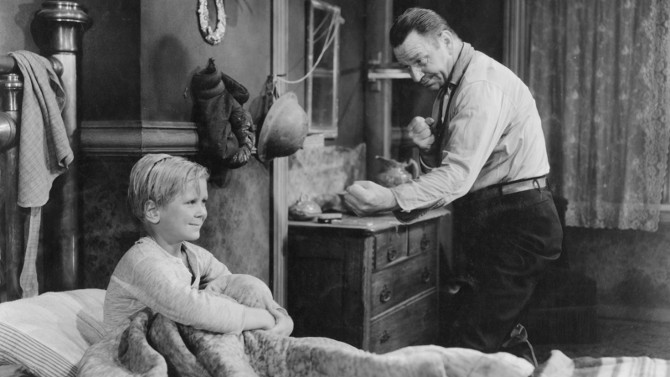
A Boy and His Champ
The story of a down-and-out boxer and his adorable son, 1931's The Champ, directed by King Vidor, is a tale of struggle and hardship as well as family, love and hope. The former champ, Andy Purcell (Wallace Beery – he won the Academy Award for Best Actor in a Leading Role in a rare tie with Frederic March), is for all intents and purposes, washed up. Though he is in the midst of training for his next bout, he continuously self-sabotages by turning to alcohol and then follows it up by playing dice, tossing the little money he has left away. His only saving grace is his young son, Dink (Jackie Cooper, one of The Little Rascals of the early sound era who went on to play Perry White in the first three Superman movies starring Christopher Reeve) – a child well beyond his years. A combination of tiny tramp and wise adult, he cares for his father like no one else. Trying to steer him away from booze and focus his wayward vision, he has a middling effect. Though his pleas reach his father, they do not stay his hand for long. The story is, in many ways, told through Dink’s eyes. The son of The Champ is usually followed by his trusty sidekick Jonah (Jesse Scott) and a plethora of other impoverished youths.
